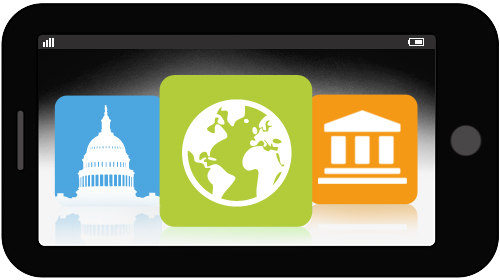
It wasn't long ago that President Obama announced on Reddit, "We will fight hard to make sure that the internet remains the open forum for everybody - from those who are expressing an idea to those who want to start a business."
The NSA's surveillance programs fly in the face of that commitment. And, more critically, they violate international law.
A recent ACLU and Amnesty International submission to the Privacy and Civil Liberties Oversight Board (PCLOB) explains that Section 702 of FISA—enacted by Congress in 2008 to codify the Bush administration's warrantless wiretapping program—authorizes surveillance that is not only unconstitutional but that violates the long-established human right to privacy. The International Covenant on Civil and Political Rights (ICCPR), which the U.S. ratified in 1992, has four primary requirements relevant to national surveillance programs.
Surveillance must be:
- limited by statute and clearly defined in nature and scope;
- narrowly tailored to address legitimate governmental objectives, such as threats to national security;
- subject to independent oversight systems to prevent abuse;
- and applied equally irrespective of nationality.
Section 702 of FISA fails each of these requirements.
Section 702, as our submission explains, "provides US officials an extremely broad grant of authority and effectively unfettered discretion to secretly collect, store, and use protected communications." Meanwhile, Section 702 programs – like PRISM – provide virtually no "protection of the privacy interests of non-US persons outside US territory." That means there are few clear boundaries, little oversight, and no meaningful protections against surveillance for noncitizens.
That's not just the position of civil liberties and human rights groups. In its recent Concluding Observations on U.S. compliance with the ICCPR, the U.N. Human Rights Committee agreed:
The Committee is concerned about the surveillance … under Section 702 … conducted through PRISM. ... The Committee is concerned that until recently, judicial interpretations of FISA and rulings of the Foreign Intelligence Surveillance Court (FISC) have largely been kept secret, thus not allowing affected persons to know the law with sufficient precision. … The Committee is concerned that the current system of oversight of the activities of the NSA fails to effectively protect the rights of those affected.
So why does international law matter here?
First, disrespect for privacy rights around the world is inconsistent with U.S. policy goals and rhetoric. As the President's NSA Review Group stated in its report: "The United States should be a leader in championing the protection by all nations of fundamental human rights, including the right of privacy, which is central to human dignity."
Second, NSA surveillance programs have already created observable "chilling effects" for both citizens and noncitizens – they actually change the way we behave. Recent studies show that knowledge of the government's omnipresent collection programs has shifted the way people conduct their digital lives, causing us to be more selective about which search terms we use and what services we connect to. As our submission notes, this stifles Internet freedom, a long-recognized policy objective of the current administration.
Finally, NSA surveillance undercuts international human rights law that protects Americans, too. U.S. disregard for noncitizens' right to privacy gives the green light to other governments to indiscriminately collect and surveil Americans' most personal data. For the protection of its own citizens' privacy, the U.S. must respect the rights of noncitizens.
Americans understand that the surveillance programs exposed by Edward Snowden violate the Constitution, and it has been heartening to witness the protest movement growing in response. But it's important to consider international implications as well. The United States should be setting global standards – not breaking them.
Learn more about government surveillance and other civil liberty issues: Sign up for breaking news alerts, follow us on Twitter, and like us on Facebook.


